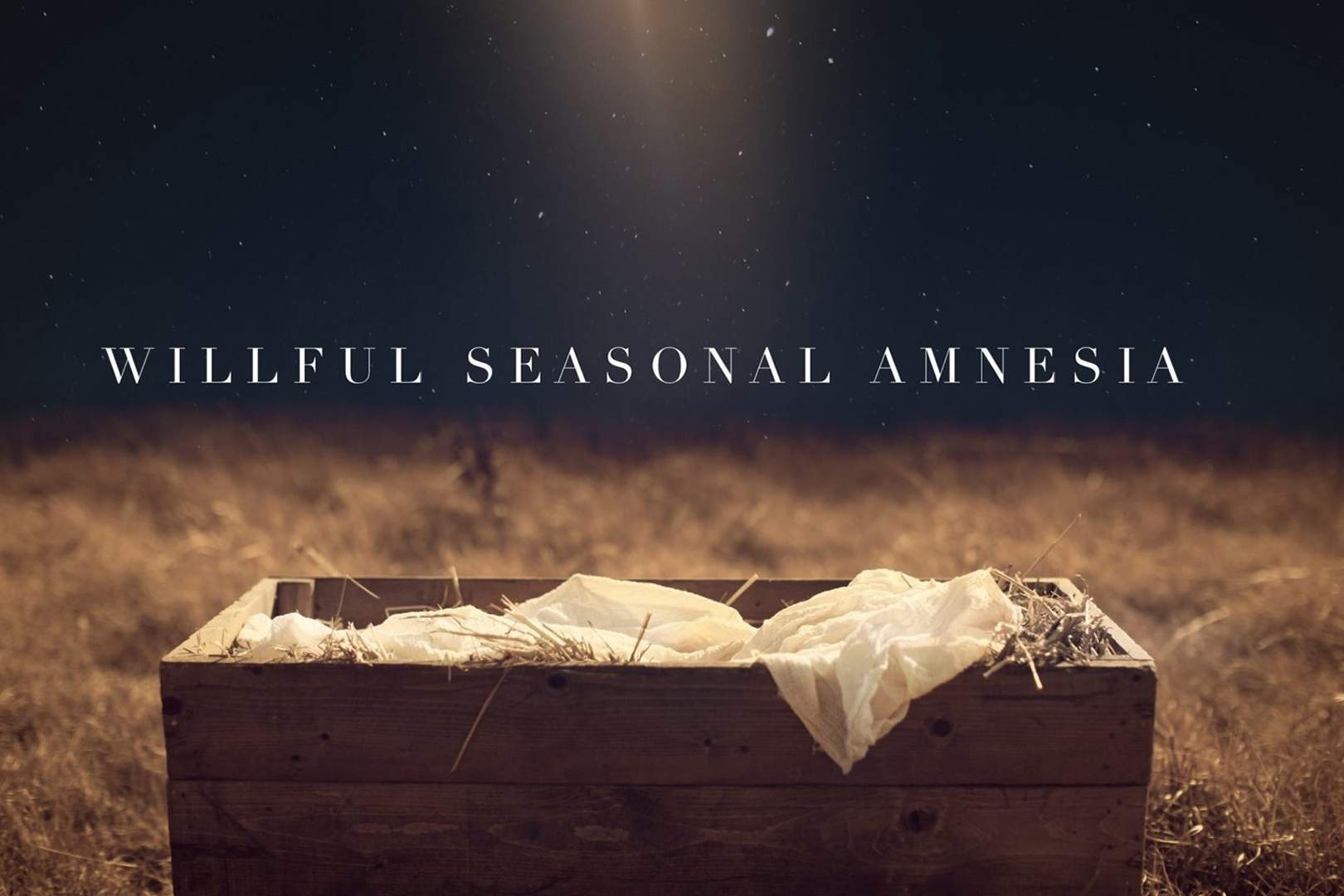
Willful Seasonal Amnesia
It happens every year—football season begins, the weather starts to cool, and Thanksgiving comes and goes; then enters the sentimentalism and nostalgia of the Christmas season. By the middle of November I see “baby Jesus” everywhere—on cards, in stores, on the television. Many people love this about Christmastime, even themselves decorating their homes in “baby Jesus” décor. This is also the time of year that our attention can become focused exclusively on “baby Jesus.”
I’m reminded of a scene from the movie Talladega Nights. At the dinner table with his family, Ricky Bobby prays to “Lord, baby Jesus” and “tiny, infant Jesus” and “8 pound- 6 ounce- newborn infant Jesus.” He can’t even finish his prayer before his wife chimes in— “Hey, you know, sweetie, Jesus did grow up.” Ricky responds, “I like the Christmas Jesus best and I’m saying grace. When you say grace you can say it to grown up Jesus or teen-age Jesus or to bearded Jesus or whoever you want.”
Although humorous, it’s regrettable how many Christians share Ricky Bobby’s view this time of year. Yes, we should be celebrating Jesus’ miraculous birth during Christmastime, but here’s the problem: Ricky Bobby’s wife was right! Jesus did grow up.
Baby Jesus Grew Up.
Did Jesus enter into human history as a baby? Yes. So what’s the problem? The reason we celebrate the coming of Jesus is because of what he did on the Cross about 30 years after his birth. In other words, if this man, Jesus, was born 2,000 years ago to a virgin and lived for about 30 years and then died, and that was it, end of story, then we would have nothing to celebrate. We’d just have one crazy story to tell.
If we are celebrating the birth of Jesus, we are only celebrating because of what he came to do, and the fact that he accomplished what he came to do. Even those who fight to “Keep Christ in Christmas” can seldom articulate why. To celebrate only baby Jesus is to forget why he came. To celebrate only baby Jesus during Advent is sentimentalism, which comes from a desire for the nostalgic. This is what I call “Willful Seasonal Amnesia.” It is the voluntary forgetfulness of the complete work of Jesus during the month of December.
Correcting Our Thinking
We can correct our amnesia this Advent season by remembering the fullness of Jesus’ life and work, starting with the miraculous birth and ending with his death, burial, and resurrection. Think this sounds more like Good Friday and Easter? Maybe Christmas, Good Friday, and Easter aren’t as far apart as you once thought. Although our man-made calendar says that they are about three or four months apart, the good news of Jesus Christ has them inseparably linked. God sent his Son to fix our sin problem. God sent his Son into the world as a human to fix our sin problem. To remember the Christmas Jesus is to remember the crucified Jesus.
If we leave Jesus in the manger, we have failed to rejoice in all that the incarnation means. We must remember that Jesus came in a wooden manger to die on a wooden cross. Any version or celebration of Jesus that stops short of the Cross is not the fullness of Christ revealed at all, but is instead a sentimental substitute.
We know the whole story. This Christmas, let’s stop acting like we don’t.
